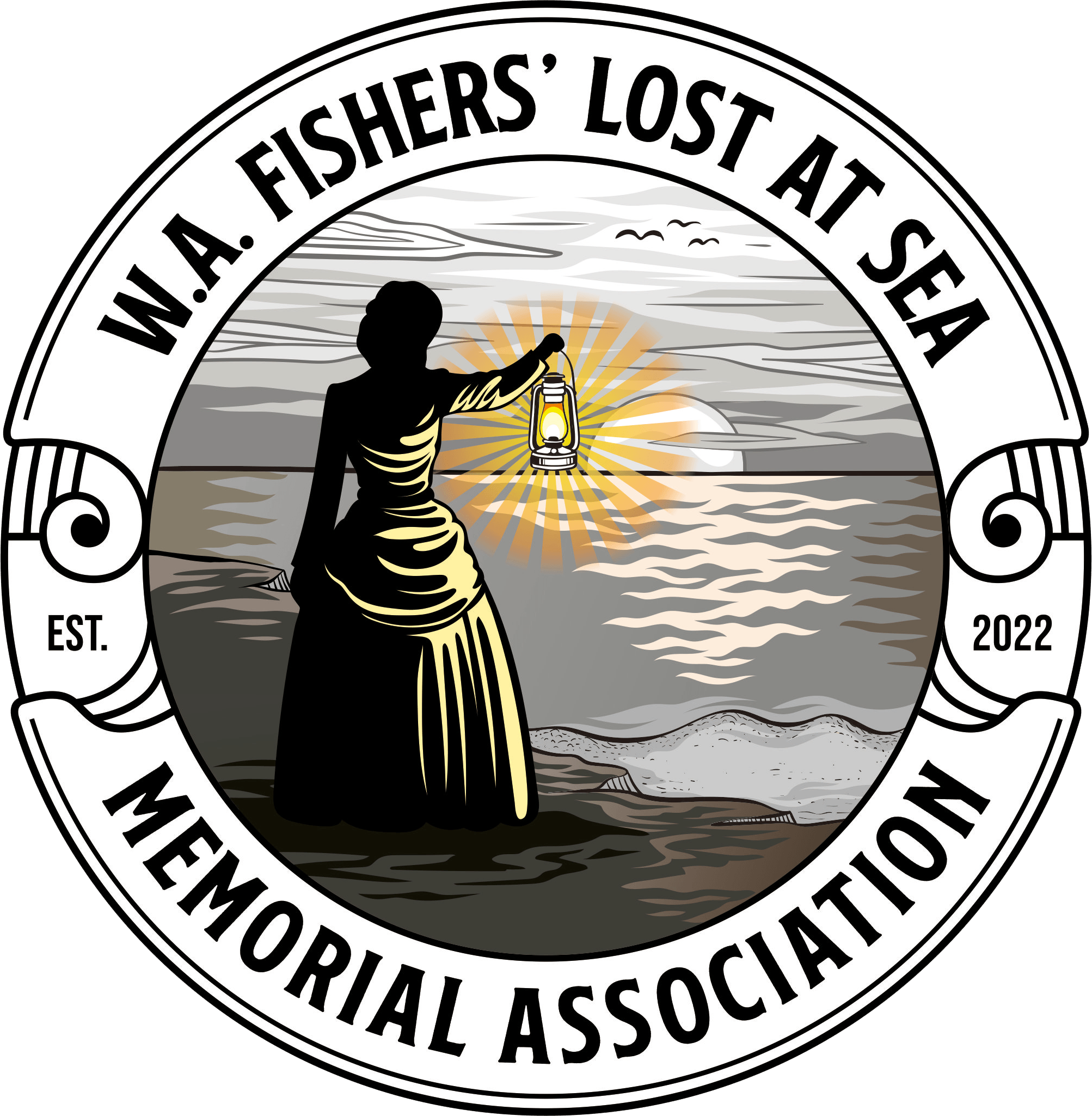Settler
Vessel Name: Settler
Charles Haskell (Askill)
John Hyde
William Hyde
John Graham
John Petit
Joh Davies
Lost from Settler's whaleboat; two bodies recovered
3 July 1837
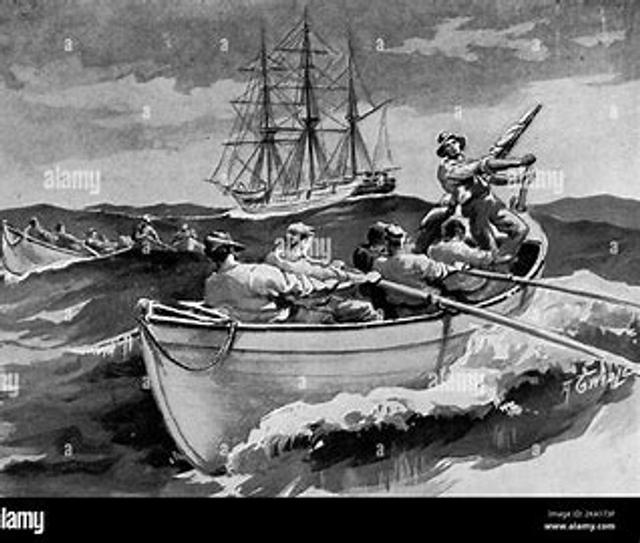
A six man whaleboat
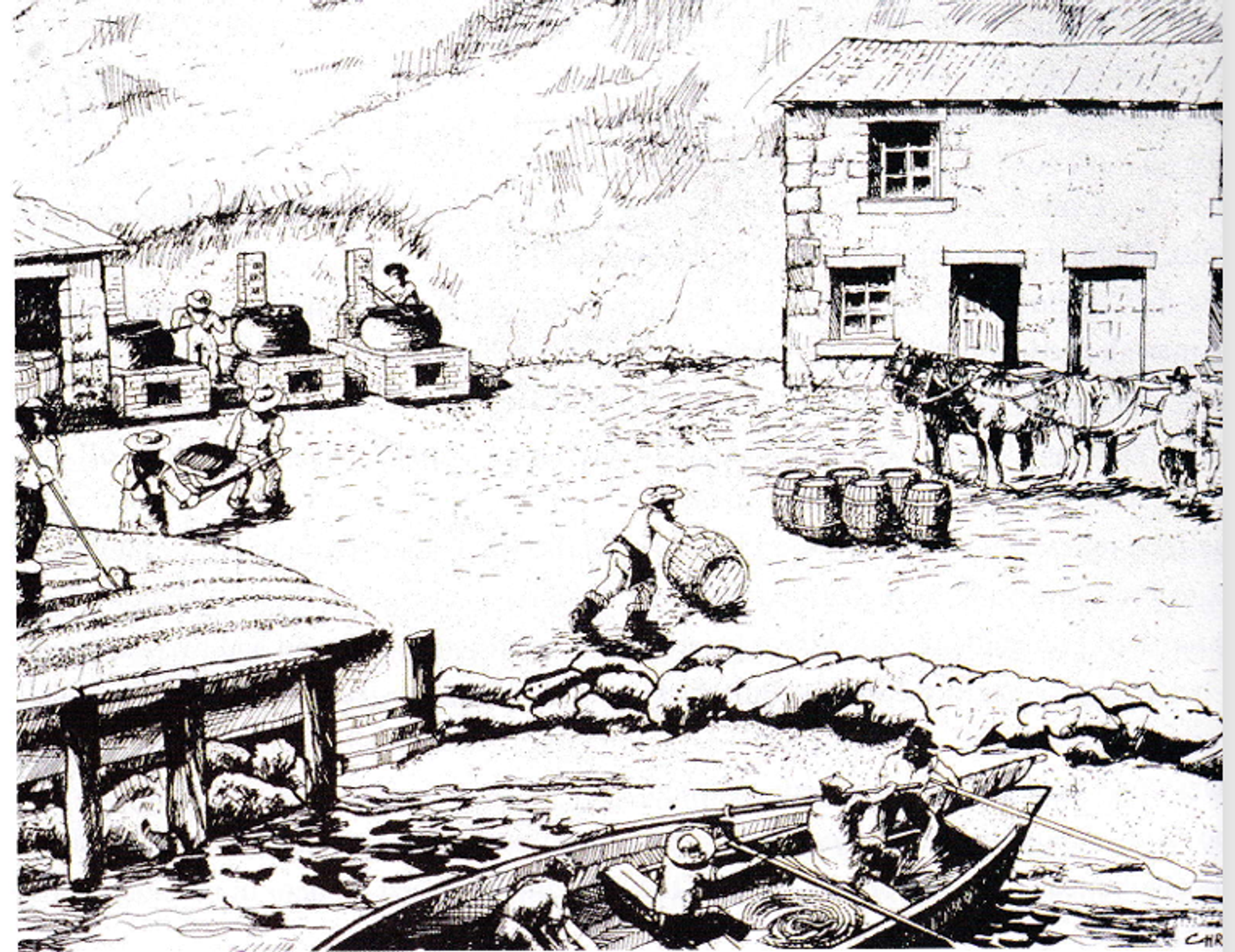
Bathers Beach whaling outfit by Chris Hill. Source: WA Museum
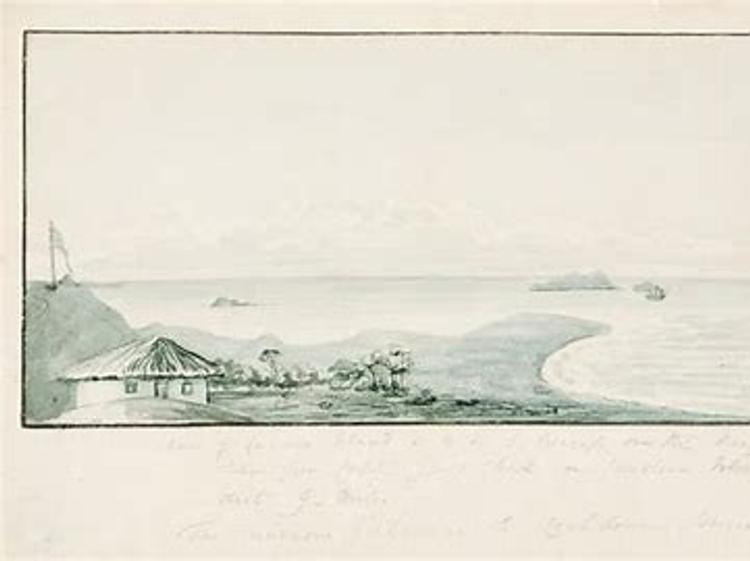
Carnac Island
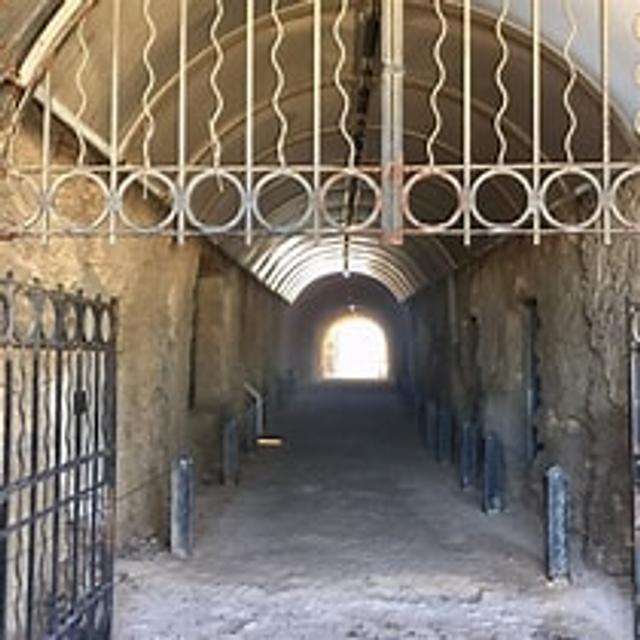
Whaler's tunnel, Fremantle
The success of American and French whalers in the south of West Australia stirred Fremantle businessmen into floating two new whaling companies: Fremantle Whaling Company and Perth Whaling Company. They were financed by the sale of shares sold to interested parties. Both companies were based on Carnac Island approximately 10 kms southwest of Fremantle.
In June 1836 the first whale was caught in Cockburn Sound using small oar boats It took both companies to catch that whale. They were thin on experience and equipment. This was a new idea for West Australians. The American whaler Cambrian put into Fremantle and supplied gear and several experienced hands to the Fremantle Whaling Co. Most of the crews came from young local labourers.
Fremantle Whaling Co. bought a wooden church (reportedly the first church in the settlement) and re-built it at Carnac Island. Fremantle Whaling Co. also had a base at Arthur Head. In August 1837 and 1839 the company dug a tunnel through Lighthouse Hill into High Street to facilitate transport of whale products and equipment.
Perth Whaling Co. ran into financial trouble within a short time. By 1838 there were plans to amalgamate the two companies, however Perth Whaling Co. closed and sold off its assets. The remaining operations were known as the Carnac Whaling Company.
The small whaler Settler initially belonged to the Perth Whaling Co. On 3 July 1837 in rough overnight weather Settler broke away from her moorings at Carnac Island. At daylight on 4 July, she was seen by the whalers residing on the islands drifting northwards.
A crew of six young whalers (with an average of 21 years) immediately jumped into a whaleboat and set out to recover the Settler. Their impulse to find the Settler overrode taking note of the weather and sailing conditions. The wind blew strongly from the south. The whale crews left on shore soon lost sight of the whaleboat and its impetuous crew. That crew was made up of:
Charles Haskell (Askill), steersman (American)
John Hyde
William Hyde
John Graham
John Petit
Joh Davies
Whale boats had a crew of 6 to row, steer and manage them. (A whaler is a whaling mother boat, while a whaleboat is a small catcher boat manned by six crew). On 6 July a crew took a whaleboat to Fremantle. They were alarmed to see no sign of Settler and the whaleboat that rowed after her. They commenced a search of the coastline north of Fremantle.
It did not take long to find the whaleboat. It was wrecked on the shore. A short distance away there was a mast, a sail, two oars and a cap from one of the whaleboat’s crew. The men continued northward, and the Settler was found washed ashore, with little damage. There was no sign of the whaleboat’s crew. It was thought that the whaleboat had been capsized or sunk in rough water.
Although the whaler Settler seemed undamaged when she was first found on the beach, she proved difficult to rescue, and in the efforts to refloat her, she was wrecked.
The “Swan River Guardian” announced on 27 July that two of the crew members’ bodies have been found. Charles Askill was found at Woodman’s Point and John Graham (25) was at Mangles Bay. John and Charles were interred at the Alma Street Cemetery. The remaining bodies were not found.
Not to be deterred, on 10 July 1837 a meeting was held for interested parties to discuss forming a larger whaling company and to raise funds for a larger whaler and more equipment.
There was a long poem of 15 verses published in the Gazette commemorating the six lost lads.
Towards the end of the poem are two particularly potent verses:
That boat again her destined way
O’er the watery foam may keep –
But the young and brave she bore that day
‘Neath the turbid waters sleep
In the washing of that ceaseless surge –
In the voice of the dark wave –
Is the perished sailor’s early dirge
On their sad and stormy grave
